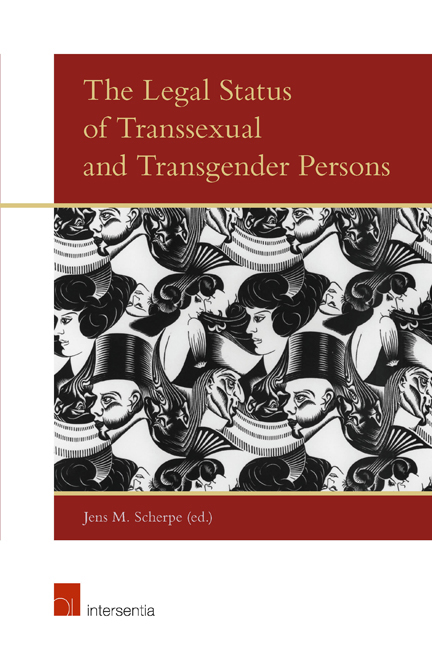Comparative Analysis and Recommendations
from PART IV - CONCLUSION
Published online by Cambridge University Press: 28 November 2017
Summary
PURPOSE OF THE COMPARATIVE ANALYSIS AND RECOMMENDATIONS
When comparing and analysing the development of the legal status of transsexual and transgender persons, what is striking is how fraught with – at best – misapprehensions and misunderstandings and – at worst – social rejection and even hatred the debates have been and, in many jurisdictions, still are. Looking back, the history of recognition of the preferred gender of transsexual and transgender persons has been, and remains, a battle against discrimination, stigmatisation, social exclusion, anxiety, pain and suffering, violation of dignity and physical integrity, and sometimes even prosecution and persecution.
While the legal and social situation of transsexual and transgender persons has improved greatly in many jurisdictions, that certainly is not the case globally. As already said in the introduction, this book therefore aims to make a contribution to the ongoing scholarly and political debates concerning the legal status of transsexual and transgender persons, both inside and outside of potential legislative reform processes. It is also meant to function as a resource for judicial and administrative decisions. One purpose of this final chapter is to compare, categorise and, where possible, explain the legal developments in the jurisdictions covered in this book. This hopefully will enable readers to see where their home jurisdictions stand, and whether the positions taken there are tenable in the light of social developments, current medical and psychological research, and international human rights standards. The other purpose of this final chapter is to identify what the developing trends are. This should allow readers to not only see the stages of development and surrounding discussions – which are surprisingly similar in many, socially diverse jurisdictions – but perhaps also see why some of the points and concerns raised in the discussions are considered to lack sufficient basis in other jurisdictions. This, it is hoped, ideally (and perhaps somewhat over-optimistically) might lead to legislatures and courts avoiding what can be referred to as ‘repeating other people's mistakes’ – in the sense that certain development stages could be ‘leap-frogged’ and a better legal standard of recognition and protection for the persons concerned achieved at the outset. In order to achieve this, the chapter will make recommendations on the criteria for legal recognition of preferred gender which are based on the comparative analysis, as well as general policy and human rights considerations.
- Type
- Chapter
- Information
- The Legal Status of Transsexual and Transgender Persons , pp. 615 - 663Publisher: IntersentiaPrint publication year: 2015



